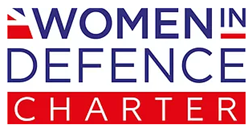
Last week we participated in the virtual Wonder Women Tech Summit. This was an excellent opportunity for us in our efforts to open doors and start conversations on various topics highlighting diversity and inclusion in the workplace, especially the tech industry.
Craig Davies took part in a panel discussion based on ‘Future of Talent: Inclusion and Social Mobility in the New World’
Inclusion is not a new concept to most businesses. It has been discussed for years, more so with recent events, however we still don’t seem to see equal representation in organisations.
In 2019, the social Mobility Commission reported that over the past five years, social mobility in the UK had virtually stagnated and may have regressed, putting the UK’s progress behind only the United States and Italy as the worst in the developed world.
The main aim of social inclusion is to disrupt social exclusion and discrimination by accepting and celebrating diversity. Social exclusion can damage economies and personal livelihoods.
Did you know, almost 1/3 of young people between the ages of 18 and 24 in the EU are at risk of social exclusion.
As leaders, the panel discussed how to address the gaps amongst organisations from entry-level to C-Level employees.
They discussed how many business structures and systems are still riddled with bias, all be it much of that unconscious. How we can move away from these autopilot processes and focus on adapting organisational processes to make a change.
We’re taking steps as an organisation to reach better diversity, build inclusive processes and incorporate all of our partners into discussions on their hiring targets and workflows. However, Craig recounted after the panel talk that he experienced a bit of imposter syndrome, being amongst a group of panellists that have a very specific focus as part of their efforts, be that women in tech, ex-offenders, or people with physical disabilities. As recruiters actively engaging talent in the market, we have a very real responsibility to ensure we’re representing everyone equally and fairly.
We’re confident with our D&I efforts but having a seat at this table was a new experience and another step in putting ourselves outside our comfort zone to engage in the conversation. The normal within our business is in fact where we sit on the other side of the fence, trying to encourage and support the people we speak to with new inclusion concepts.
This is certainly something we pointedly wanted to do and will continue to do going forward, stepping outside of our comfort zones and being aware of that.
The events over the past 6 months or so have really brought home the fact discussions around Diversity and Inclusion can no longer be a tick box exercise. It has to be something that represents real structural change.
At Orbis we’ve been working with our partners at Kodiri to educate and empower underrepresented groups and underprivileged young people with coding. Looking at alternative ways to look at Developer’s skills with unique spider graph measurements in elements like accuracy, for example. Beginners can play games with multiple choice questions, encouraging people to take part no matter their level of experience. It’s a great example of a helpful implementation into a process, so that a wider group of diverse participants can get involved.
Aside from technical platforms, we’ve been looking at internal social awareness for Diversity and Inclusion with our partners, Tech Talent Charter. We’ve been hosting internal workshops with the TTC to kick start conversation, urge the team to voice their opinions, ask questions and ultimately educate ourselves on the best ways we can move forward and progress with our own actions and efforts at Orbis and as individuals.
What is the change we need? What actions will you be committing to?



